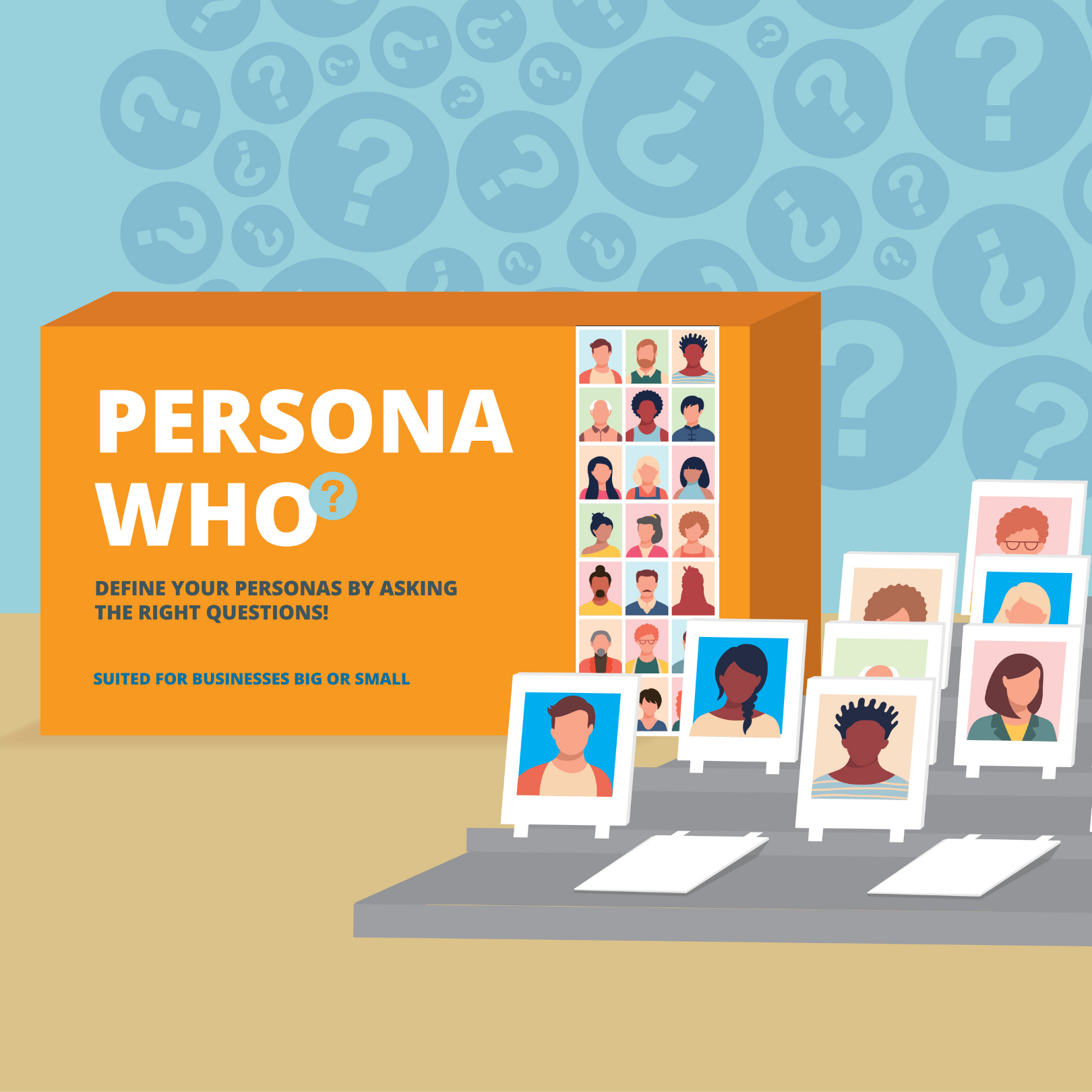If you were to think of your ideal customer, who comes to mind? You might be in a niche field with a very specific market, or you could have a variety of consumers to target with your different services. You may feel like you have a little something for everyone, or you’re in a position where you know you have something great to offer… if only the right buyer could find you.
Regardless of the scenario you find yourself in, your business could benefit from learning a little more about your customers—so you can start attracting the ones you really want. The goal is to narrow your focus and target your efforts by creating buyer personas, which HubSpot defines as “semi-fictional representations of your ideal customer based on market research and real data about your existing customers.”
The keywords here are research and data. That includes both quantitative data: demographic data captured from your website, emails, and industry studies, and qualitative data: insights from persona interviews with your customers.
To identify who would be the best candidates for a persona interview, consider your existing customers who make you think, “I’d like to work with more people like them!” Then, use the following topics and questions to help guide the conversation. You’ll glean valuable insights that will help you discover what really sets these individuals apart, so you can start finding more of them!
Ask about their personal background.
Start here to learn more specific and unique information about your customer first, like where they came from and how they got to where they are now. This would include questions about their demographics, educational background, and career path. The more specific, the better.
Sample questions:- It’s as easy as, “Tell me about yourself!”
- Where do they live?
- What is their level of education?
- What/where did they study?
- What positions have they held? At what companies?
Dig into details about the company and their role.
With this information, you’ll gain a better understanding of how the company does business and how this individual does their job. Look for opportunities to help them solve the challenges they struggle with on their own, while helping them do what they’re great at even better.
Sample questions:- What size is their company (revenue/number of employees)?
- What types of products/services do they offer?
- What are the main responsibilities of their role?
- How is their success measured?
- What are their biggest/most common challenges?
Discuss what their buying process looks like.
- There are many factors that can affect the decision to buy or partner with someone. Learning what your ideal customer considers during the buying process can help you be prepared for questions or barriers that appear along the way.
- What is your decision-making process for starting a purchase or partnership?
- Who is involved in making the decision?
- What influences your purchasing decision the most?
- What is most important to you when selecting a partner?
- What would deter you from working with a partner?
Find out how they use the internet and social media in their role.
The tools and information your customer uses to do their job may also help you as you continue your industry research or seek new customers. Plus, you may be able to make a few recommendations to help enhance their marketing.
Sample questions:- How do they learn new information about their job or industry?
- What websites or online blogs/publications do they read?
- Are they a member of any associations?
- What social media platform(s) do they use (personally or professionally)?
- How do they market their business?
Explore your relationship with their company.
You know what it’s like to work for your company, but your customer can tell you what it’s like to work with your company. They can tell you the positives and negatives, what makes you unique, and any areas to improve—all things to be aware of as you pursue relationships with new customers.
Sample questions:- What attracted them to your company?
- What other options did they look into, and why did they choose you?
- How did they find you?
- How could your company do a better job?
- What could you do to reach more people like them?
Ultimately, the information you gather from persona interviews, along with any additional research or data, can help you build strong buyer personas that identify the type of customers you can serve most effectively, who can also help your business grow. The goal is to have the most mutually beneficial relationships possible!
Take the next step.
Once you’ve built out your personas, start using them throughout your sales process! If you use HubSpot, you have the ability to create lists and organize your leads based on personas. You can also create personalized automated campaigns and tailor your communications to specific audiences.
Want to learn more? Contact LMG for assistance on building and leveraging buyer personas for your business.



